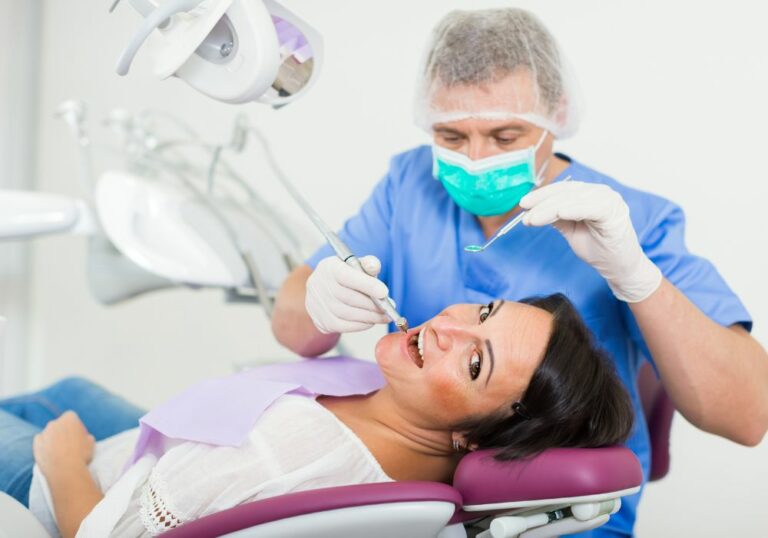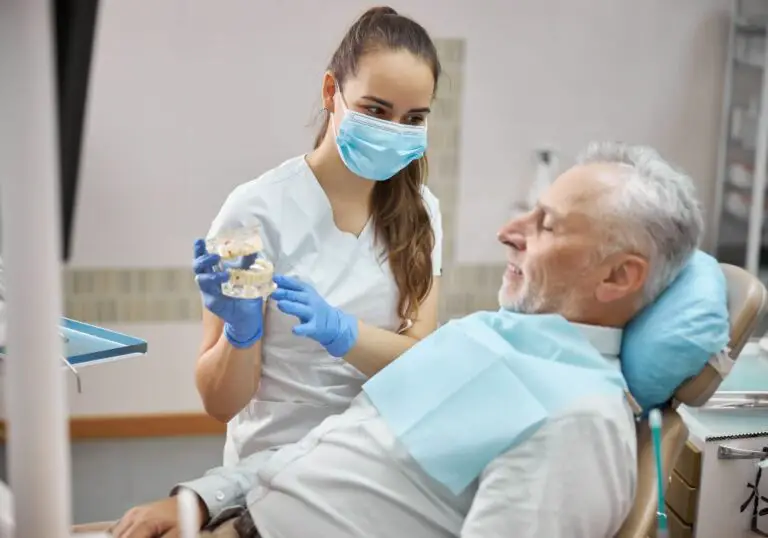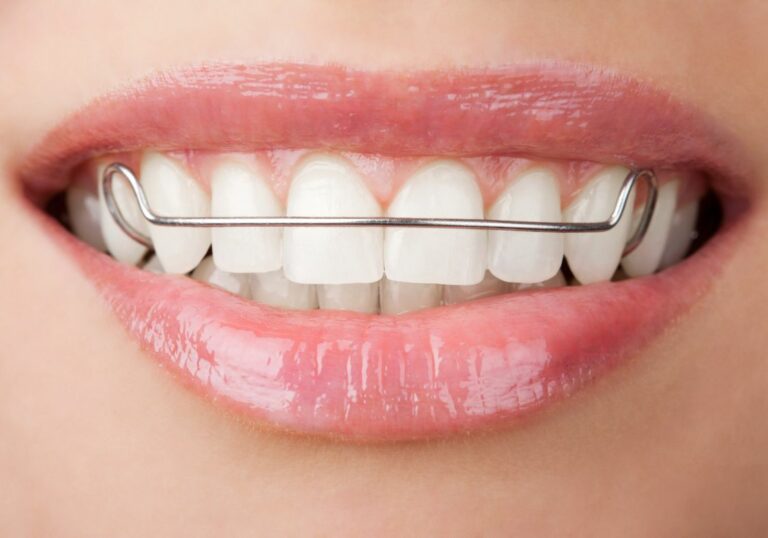Wisdom tooth swelling and pain are common issues that many people face in their late teens or early 20s. As the last set of molars erupt, wisdom teeth often become impacted or only partially emerge from the gums. This can lead to irritation, inflammation, and infection in the gums surrounding the teeth. Treating wisdom tooth swelling and pain promptly is key to providing relief and preventing more serious complications. This comprehensive guide will take an in-depth look at the causes, home remedies, professional treatment options, and recovery process when dealing with swollen wisdom teeth.
Causes and Contributing Factors of Swollen Wisdom Teeth
There are several potential causes and contributing factors for wisdom tooth swelling and inflammation:
- Pericoronitis – This is inflammation of the gum tissue surrounding a partially erupted wisdom tooth. It occurs when the gum flap overlaying the emerging tooth becomes irritated. Food particles and bacteria can easily become trapped under the flap, causing an infection.
- Impacted wisdom teeth – When a wisdom tooth becomes impacted, it means the tooth is stuck below the surface of the gums and cannot properly erupt through the tissue. The trapped and compressed tooth often pushes up against the surrounding gums, bone, and other teeth. This constant irritation leads to pain, swelling, and infection.
- Periodontal disease – General gum disease in the area can cause the gums around the wisdom teeth to become inflamed, irritated, and more prone to infection. Poor oral hygiene leads to plaque buildup, which exacerbates inflammation.
- Dry socket – This painful condition sometimes occurs after wisdom tooth extraction if a blood clot fails to form in the empty socket. The exposed bone becomes irritated. Swelling, bad odor, and severe pain results.
- Smoking – Tobacco use slows healing and can lead to complications after wisdom tooth removal. It also increases the likelihood of developing infections and dry socket.
- Difficult eruption – When wisdom teeth first begin erupting through the gums, it often causes irritation and inflammation of the surrounding gum tissue, resulting in pain and swelling.
- Infection – Bacterial infections are very common with wisdom teeth, especially around impacted or partially erupted teeth. Abscesses and pericoronitis can cause severe swelling.
- Tooth decay – Cavities and dental caries affecting the wisdom teeth can spread into the tooth pulp and supporting jaw structures. This leads to infection and abscess formation.
Home Remedies and OTC Treatments for Wisdom Tooth Swelling

If you’re experiencing pain, swelling, or inflammation around your emerging wisdom teeth, there are several home remedies and over-the-counter methods that may provide relief:
1. Saltwater Rinses
- Make a saltwater solution with 1 teaspoon of salt dissolved in a glass of warm water.
- Swish the solution vigorously around the affected wisdom tooth area for 30-60 seconds 2 to 3 times a day.
- Spit out the saltwater and rinse your mouth afterward.
- The salt draws out fluid and reduces swelling. It also helps clean food debris from around the tooth.
2. Cold Compresses
- Fill a washcloth with ice, wrap ice cubes in a towel, or use a reusable cold pack. Avoid direct contact between ice and skin.
- Apply the cold compress to the outer cheek and gum area near the swollen wisdom tooth for 10-20 minutes at a time, several times a day.
- The cold constricts nearby blood vessels to reduce blood flow, inflammation, and swelling.
3. Anti-inflammatory Medications
- Over-the-counter non-steroidal anti-inflammatory drugs like ibuprofen (Advil, Motrin), naproxen (Aleve), or aspirin can help reduce wisdom tooth swelling and pain.
- Follow the dosage on the medication bottle. Take with food to minimize upset stomach.
- Anti-inflammatories block inflammatory pathways that lead to swelling, pain, and fever.
4. Soft Foods
- Stick to soft, cool foods like yogurt, pudding, applesauce, and ice cream around swollen wisdom teeth.
- Avoid very hot, crunchy, or acidic foods that could further irritate the inflamed gum tissue.
5. Proper Oral Hygiene
- Continue gently brushing and flossing around the swollen wisdom tooth area to keep it clean.
- Use an antibacterial mouthwash to prevent bacterial overgrowth that could worsen infection.
- Avoid vigorously disturbing or irritating the inflamed gum tissue.
6. Clove Oil
- Clove oil contains eugenol, which has natural pain-relieving and anti-inflammatory properties.
- Soak a cotton ball in clove oil and dab it onto the swollen gum area 3-4 times a day for temporary pain and inflammation relief.
7. Turmeric
- Turmeric has curcumin, a compound with antioxidant and anti-inflammatory effects that may help reduce wisdom tooth swelling.
- Mix 1/2 teaspoon of turmeric powder into a glass of warm milk or water and drink daily. You can also apply a turmeric paste directly.
Seeking Professional Treatment for Persistent Wisdom Tooth Swelling
While home remedies may provide temporary relief, it’s important to promptly contact a dentist or oral surgeon if:
- Swelling lasts longer than 2-3 days without improvement
- Pain becomes severe or doesn’t respond adequately to OTC medication
- You develop fever, headache, neck/throat swelling, or bad taste/odor
- You have difficulty fully opening your mouth or chewing
Leaving wisdom tooth swelling unchecked can allow infections to worsen and spread. This requires professional treatment with antibiotics, drainage, or extraction. Signs of spreading infection warrant emergency care.
What Can Oral Surgeons Do to Treat Swollen Wisdom Teeth?

If home treatment fails to resolve wisdom tooth swelling, oral surgeons have several methods to provide relief:
1. Wisdom Tooth Extraction
Removing the problematic wisdom tooth may be necessary to treat chronic infections and pericoronitis. This immediately eliminates the source of inflammation.
2. I&D: Incision and Drainage
If an abscess is causing the swelling, the oral surgeon will numb the area then make a small incision to drain out the pus. This brings instant relief.
3. Prescribing Antibiotics
For bacterial infections, oral surgeons may prescribe antibiotics like penicillin, clindamycin, or amoxicillin to resolve wisdom tooth infections.
4. Flap Surgery
The swollen gum tissue overlaying a partially erupted wisdom tooth can be surgically lifted up to clean out trapped debris and food. This reduces irritation.
5. Coronectomy
If a wisdom tooth is heavily embedded in a nerve, sometimes only a portion of the crown is extracted while the root is left behind to prevent nerve damage.
Post-Treatment Recovery Tips for Wisdom Tooth Swelling

Follow these tips to help reduce swelling and promote healing after having your wisdom teeth professionally treated:
- Apply cold compresses to the cheek area for 15-20 minutes several times a day to reduce inflammation.
- Take over-the-counter pain relievers as directed by your oral surgeon to help manage discomfort.
- Eat soft, cool foods for a few days. Avoid very hot foods.
- Rinse gently with warm saltwater after 24 hours to keep the area clean.
- Avoid drinking from a straw, as this can dislodge the blood clot after extraction.
- Sleep with your head elevated on pillows to minimize swelling.
- Avoid smoking or use of tobacco, as this impedes healing.
- Take all prescribed antibiotics fully to clear up infections.
- See your oral surgeon promptly if severe pain, bleeding, or swelling arises after treatment.
Closely following post-procedure oral surgeon instructions speeds recovery and healing after swollen wisdom tooth treatment.
When to Seek Emergency Care for Wisdom Tooth Swelling?

In some cases, wisdom tooth swelling requires urgent emergency medical care to prevent dangerous complications:
Seek emergency care immediately if you have:
- Difficulty breathing or swallowing
- Rampant swelling spreading into the neck
- Severe, throbbing pain not relieved by medication
- Pus draining from the gums
- High fever over 101°F
These serious symptoms can indicate a spreading wisdom tooth infection that could advance to a life-threatening condition if left untreated. IV antibiotics, hospitalization, emergency drainage procedures, or tooth extractions are often required in these cases to stop the infection from spreading.
Don’t hesitate to visit an emergency dentist or hospital ER if your wisdom tooth swelling is accompanied by any of these emergency warning signs. Timely treatment is vital.
Frequently Asked Questions About Wisdom Teeth Swelling
1. Why do my wisdom teeth hurt after they first come in?
As wisdom teeth begin pushing through the gums, it causes irritation and inflammation of the surrounding tissue. The pressure on the gum flap can be very painful until the tooth fully erupts. Infection is also common which exacerbates pain and swelling.
2. Should I have wisdom teeth removed if they are swollen?
If wisdom tooth swelling and infections keep recurring despite antibiotic treatment and home remedies, extraction is often the best option for long-term relief. Prophylactic removal is sometimes recommended to prevent future problems.
3. How long does wisdom tooth swelling last?
With proper home care and avoidance of irritants, wisdom tooth swelling should begin improving within 3-4 days. If swelling persists longer than this, oral surgeon evaluation is needed. Swelling may come and go for weeks during eruption.
4. Can wisdom teeth swell years after removal?
In rare cases, small fragments of the wisdom tooth root may be left behind after extraction. These remnants can later become infected and cause delayed swelling and pain years after removal. Additional surgery to extract the fragments is usually required.
5. What helps reduce wisdom tooth swelling quickly?
Cold compresses constrict blood vessels to quickly minimize swelling and inflammation. Anti-inflammatory medications like ibuprofen also provide relatively fast relief of swelling and pain.
Conclusion
Wisdom tooth swelling and pain are common experiences, particularly as the teeth first erupt in young adults. While uncomfortable, symptoms can often be managed with home remedies and OTC medication. However, prolonged swelling or severe infections require prompt oral surgeon treatment and sometimes extraction. With timely professional care and adherence to post-procedure instructions, wisdom tooth swelling can be effectively resolved for long-term healing and relief.






